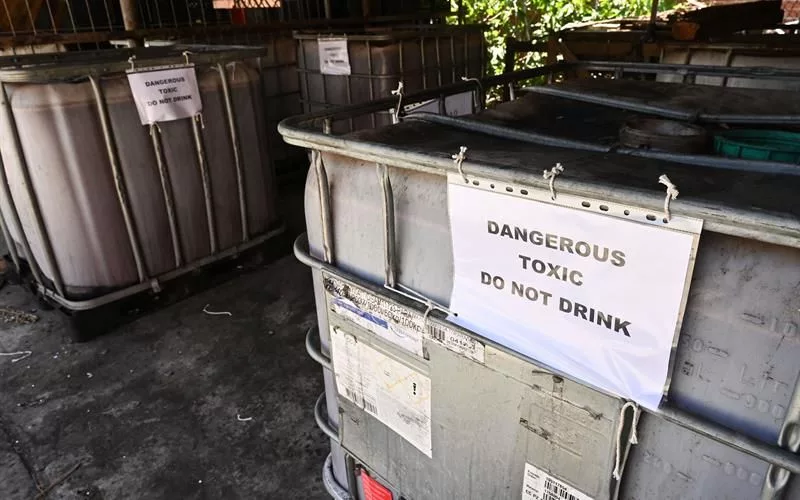Tender fraud scams are a growing concern in the digital age, with fraudsters impersonating official departments to deceive individuals and businesses into paying for services. To avoid falling victim, service providers should confirm the legitimacy of any requests or purchase orders they receive by contacting the relevant department directly. Education, awareness, collaboration, and leveraging technology are all key to preventing and combating tender fraud scams. The recent GCIS tender fraud scam has highlighted the importance of vigilance and caution in all transactions.
What are tender fraud scams and how can they be avoided?
Tender fraud scams involve the impersonation of official departments and the misuse of department details to create fake documents to deceive individuals and businesses into paying for services. To avoid falling victim to these scams, service providers should confirm the legitimacy of any requests or purchase orders they receive by contacting the relevant department directly. Additionally, education and awareness, collaboration among stakeholders, and leveraging technology can all help prevent and combat tender fraud scams.
A Disturbing Trend: Tender Fraud Scams
In the age where digital technology is deeply integrated into our lives, tender fraud scams have emerged as a growing concern. Recently, the government issued a warning about a potential tender fraud scam involving the impersonation of Government Communication and Information Systems (GCIS) officials and the misuse of department details. This elaborate scam has raised alarm among service providers and the general public.
These fraudsters demonstrate a high level of cunning and resourcefulness in their tactics. They fabricate fraudulent GCIS documents such as appointment letters, official purchase orders, and contracts, complete with forged signatures of GCIS officials. The scammers possess insider knowledge, as they know the names of various officials in the department, including the CFO, Director: SCM, and others. Their primary modes of communication are through mobile contact and email.
To further mislead their targets, the scammers insist on upfront payments for conducting business with the GCIS department. This stipulation serves as a warning sign, as it deviates from standard practices when transacting with the department. The GCIS has explicitly advised service providers and the public not to comply with such requests and to report such incidents promptly to law enforcement authorities.
Measures to Counter Tender Fraud Scams
In an effort to raise awareness about this issue, the government has urged service providers to confirm the legitimacy of any requests or purchase orders they receive. Verification can be conducted by contacting the GCIS department at 012 473 0000. By doing so, individuals can potentially safeguard themselves from these scams and protect their finances.
Tender fraud scams are not a new occurrence. They have long plagued various industries, with scammers adapting their methods and schemes to stay ahead. In the past, similar scams have been reported where fraudsters misused the names of reputable institutions and organizations to deceive their victims. The ongoing GCIS scam serves as a stark reminder of the importance of vigilance and cautiousness in our transactions.
The audacity of these scammers can be traced back to the anonymity afforded by digital technology. The ease of producing fake documents, impersonating officials, and operating from any location worldwide has facilitated fraudster activities. In response, institutions and organizations must bolster their measures to deter and curb such scams.
Leveraging Technology and Collaboration to Tackle Scams
Education and awareness are vital in combating tender fraud scams. Regular communication and updates from government institutions on these matters can help create a more informed and cautious public. Additionally, service providers should train their employees on the potential risks and warning signs associated with tender fraud scams.
Social media platforms can serve as an effective means of raising awareness about tender fraud scams. The government can use platforms like Facebook, Twitter, and LinkedIn to share information on scams and provide a space for the public to report suspicious activities. By harnessing the power of social media, the government can foster an environment where scammers face increasing difficulty in succeeding.
Another crucial aspect of addressing tender fraud scams is fostering collaboration among various stakeholders. Government institutions, law enforcement agencies, and service providers must join forces to devise strategies to identify, track, and prosecute scammers. Such collaboration ensures a unified effort in dismantling and preventing fraud.
Despite the technological advancements that have facilitated such scams, technology can also be employed as a defense against them. Government institutions can harness technology to develop advanced systems that detect and prevent fraud. This approach not only hinders scammers’ operations but also showcases the government’s dedication to protecting its citizens and businesses from fraud.
The recent GCIS tender fraud scam serves as a wake-up call, emphasizing the potential risks and consequences of such fraud. It underscores the importance of maintaining vigilance, staying informed, and cultivating a culture of caution and collaboration. By doing so, we can shield ourselves, our businesses, and our communities from the devastating effects of tender fraud scams.
What is the recent GCIS tender fraud scam and how does it work?
The recent GCIS tender fraud scam involves the impersonation of GCIS officials and the misuse of department details to create fake documents such as appointment letters, official purchase orders, and contracts, complete with forged signatures of GCIS officials. The fraudsters possess insider knowledge and communicate through mobile contact and email. They insist on upfront payments for conducting business with the GCIS department, which deviates from standard practices.
What should service providers do to avoid falling victim to tender fraud scams?
Service providers should confirm the legitimacy of any requests or purchase orders they receive by contacting the relevant department directly. In the case of GCIS, verification can be conducted by contacting the department at 012 473 0000.
What are some measures that can be taken to counter tender fraud scams?
Education and awareness, collaboration among stakeholders, and leveraging technology can all help prevent and combat tender fraud scams. Regular communication and updates from government institutions on these matters can help create a more informed and cautious public. Social media platforms can serve as an effective means of raising awareness about tender fraud scams. Government institutions can also harness technology to develop advanced systems that detect and prevent fraud.
What are some warning signs associated with tender fraud scams?
Upfront payments, deviation from standard practices, and pressure to act quickly are all warning signs associated with tender fraud scams.
What should service providers do if they suspect they have fallen victim to a tender fraud scam?
Service providers should report any suspicious incidents promptly to law enforcement authorities.
Is tender fraud a new occurrence?
No, tender fraud scams have long plagued various industries, with scammers adapting their methods and schemes to stay ahead.
How has digital technology facilitated tender fraud scams?
Digital technology has facilitated tender fraud scams by affording anonymity to scammers, making it easy to produce fake documents, impersonate officials, and operate from any location worldwide.
Why is collaboration among stakeholders important in addressing tender fraud scams?
Collaboration among stakeholders is important in addressing tender fraud scams because it ensures a unified effort in dismantling and preventing fraud. Government institutions, law enforcement agencies, and service providers can join forces to devise strategies to identify, track, and prosecute scammers.








